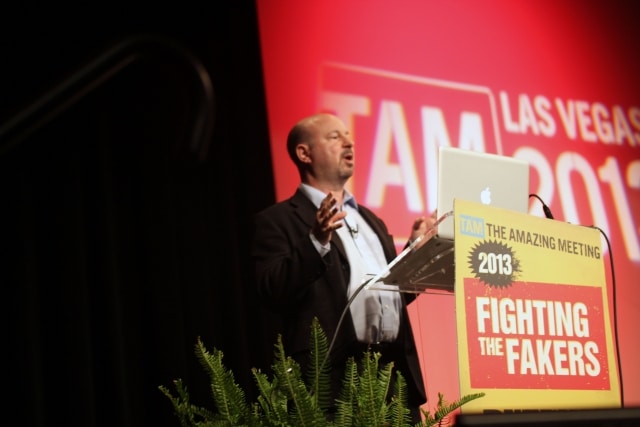We continue our DeSmog UK epic history series with the sceptics’ endless search for any evidence that Mann had manipulated science in producing his hockey stick graph.
The climate deniers’ hunt for any shred of evidence that Michael Mann had manipulated science in producing his hockey stick graph went unabated, and in the mid-2000s started to interest the media.
Ross McKitrick, senior fellow at Vancouver-based libertarian think tank the Fraser Institute, his collaborator, Steve McIntyre, a mining executive and author of the sceptic blog Climate Audit, and a senator named Joe Barton were unrelenting in their pursuit.
Their strategy was to find any mathematical or methodological flaws in the hockey stick graph, despite the fact the main findings of the study had been replicated by independent scientists and Mann was moving on to other research.
McKitrick was accused of living in a glass house when the computer scientist Tim Lambert discovered he had, in fact, mixed up degrees and radians in a study he claimed proved climate change was not caused by humans.
Science Journals
McIntyre and McKitrick submitted a paper to Nature in January 2004 but the respected peer-reviewed journal refused to publish their critique.
So instead, the two published the article online along with correspondence between themselves, the journal and Mann. And, in February the following year their paper was accepted and published by Geophysical Research Letters.
At last, they had a major breakthrough to celebrate: the first time a “real science journal” had lent credence to a sceptic attack on the hockey stick.
The paper was picked up by Antonio Regalado at the Wall Street Journal which ran an attention-grabbing front page story with a cartoon illustration on Valentine’s Day 2005 presenting McIntyre, the minerals consultant, as a David successfully delivering a knockout blow to the Goliath of climate science.
Mann later complained: “The major deficiency in Regalado’s article was that it conveyed the highly misleading impression that McIntyre had invalidated our work. He hadn’t.”
Barton’s Inspiration
The splash did, however, catch the eye of Joe Barton, the Republican member of the House of Representatives for Texas and a Tea Party supporter.
McIntyre’s work had inspired Barton, the chair of the House Committee on Energy and Commerce, to investigate Mann, and the following June, he wrote to the scientist and demanded the raw data behind the hockey stick.
“Questions have been raised,” the letter stated, “about the significance of methodological flaws and data errors in your studies of the historical records of temperatures and climate change.”
A similar letter was also sent to Dr Rajendra Pachauri, chair of the UN Intergovernmental Panel on Climate Change (IPCC). Mann handed over the data, but this did nothing to stop Barton’s charge.
The following month, McIntyre’s paper attacking Mann was being championed by dean of deniers Senator Jim Inhofe, chairman of the Senate Committee on Environment and Public Works.
Industry Influence
Environmentalists were furious that the attack on Mann gained significant attention in the media and in American democratic institutions. They pointed to the fact McIntyre was a mining consultant who worked closely with the energy industry and who had served as a former president of Northwest Exploration Co Ltd, and as a “strategic advisor” to the same oil and gas exploration company after it became CGX Energy.
They also pointed to the huge financial contributions from oil that the men had enjoyed.
Barton, for example, received $426,000 from electricity companies and a further $247,600 from the gas and oil industry during the same period, according to the Centre for Responsive Politics’ analysis of published campaign funds.
Years later, McIntyre said: “I had no idea that there would be any interest in my work, and the fact that some people have found it interesting, I find very flattering.”
Next time, the DeSmog UK epic history series will introduce you to an environmental journalist who later took money from ExxonMobil, placing blame on consumers rather than fossil fuels for causing climate change.
Photo: Wikimedia Creative Commons
Subscribe to our newsletter
Stay up to date with DeSmog news and alerts






